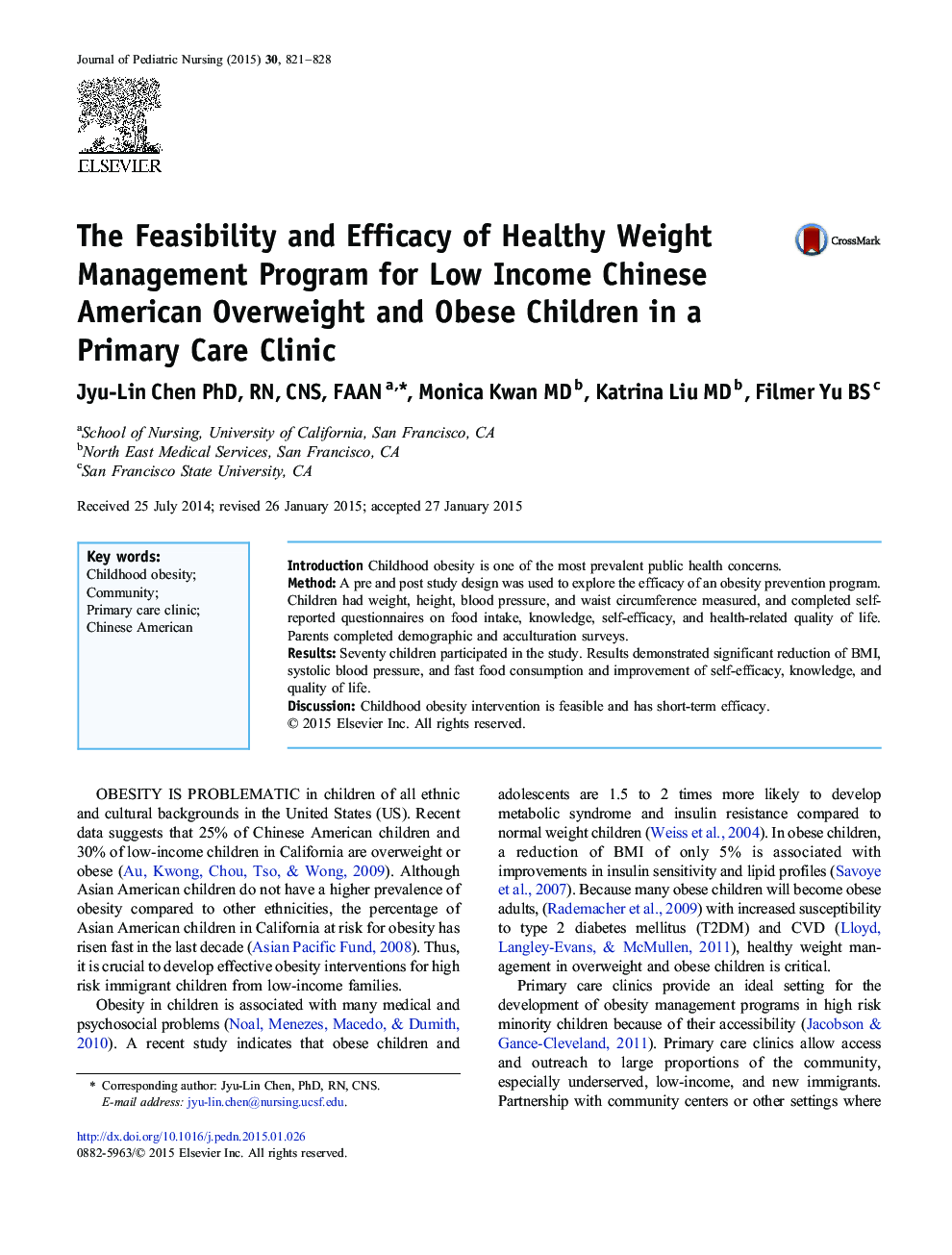| Article ID | Journal | Published Year | Pages | File Type |
|---|---|---|---|---|
| 2663719 | Journal of Pediatric Nursing | 2015 | 8 Pages |
Contribution of the PaperWhat is already known about the topic?Children who are ethnic minorities, from low-income families, and live in urban neighborhoods are at higher risk for obesity, low levels of physical activity, and poor nutritional intake.Primary care clinics provide an ideal setting for the development of obesity management for children.What this paper adds?This study demonstrates that a program that is a culturally sensitive, small group-based with collaboration with community in a primary care setting is feasible and well-received.This study suggests that this type of intervention has short-term efficacy for reducing BMI and BP and improve quality of life in overweight and obese Chinese American children from low-income families.
IntroductionChildhood obesity is one of the most prevalent public health concerns.MethodA pre and post study design was used to explore the efficacy of an obesity prevention program.Children had weight, height, blood pressure, and waist circumference measured, and completed self-reported questionnaires on food intake, knowledge, self-efficacy, and health-related quality of life. Parents completed demographic and acculturation surveys.ResultsSeventy children participated in the study. Results demonstrated significant reduction of BMI, systolic blood pressure, and fast food consumption and improvement of self-efficacy, knowledge, and quality of life.DiscussionChildhood obesity intervention is feasible and has short-term efficacy.
